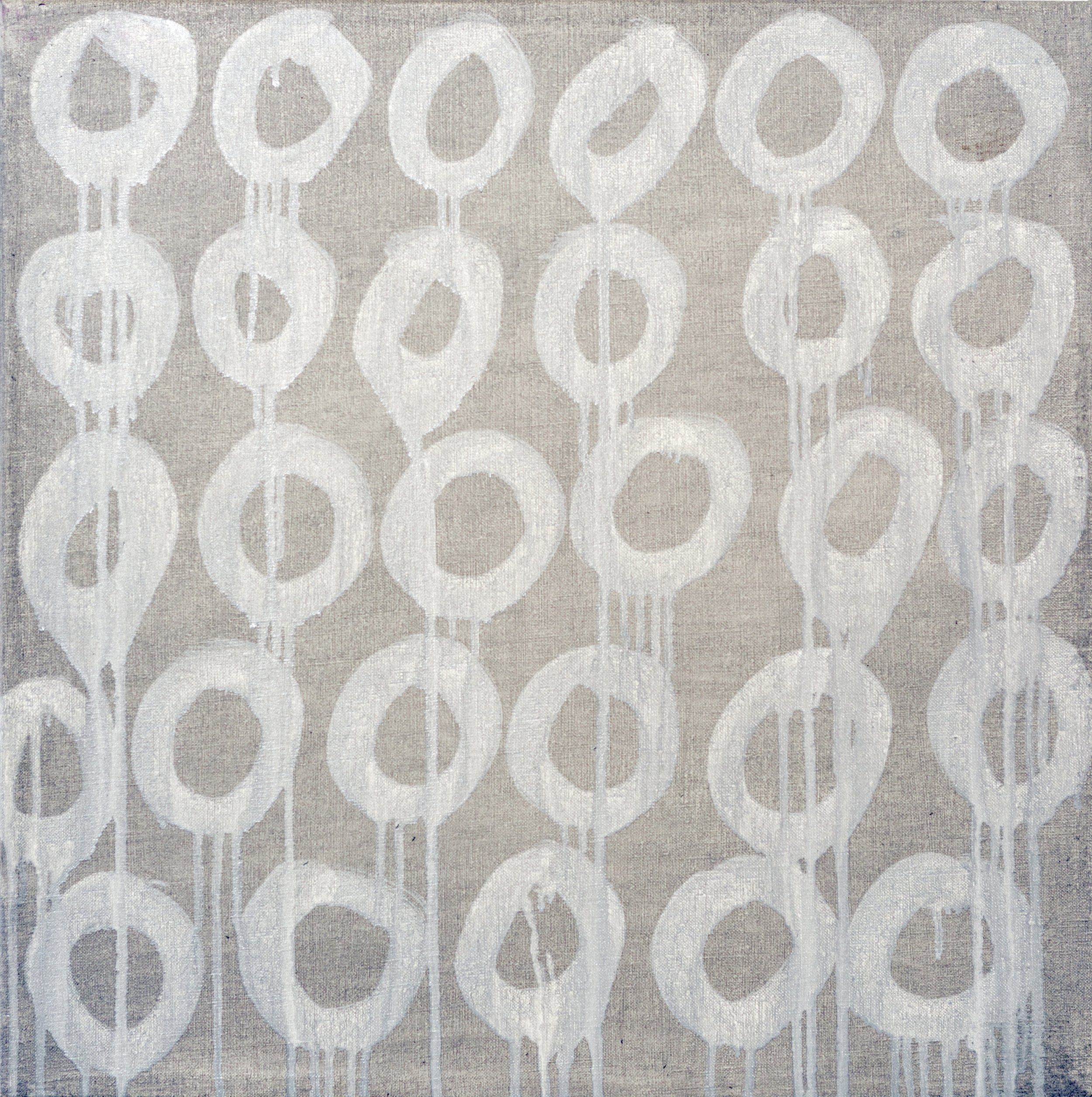May Notes - 2024
Since the beginning of the year, I have been working on a series of highly detailed paintings. I set out to determine if I could make a large-scale painting using the tiny marks of my small paintings. Besides the extreme number of tiny marks, there are also layers of tiny marks. As I worked on them I became consumed by the relationships between each of the marks, the color, texture, surface, and opacity. To do them was like entering a deep meditation.
But then one must consider how the painting works as a whole: how it will be read from across the room. Or maybe the painting is not meant to be viewed from across the room.
The artist Pat Adams once told me that the proper distance to view a painting was one and a half time the length of the diagonal of the painting. That may be true if its a 19th century landscape painting, but it is certainly not true of a Barnett Newman or Jackson Pollock. And I don’t think it is true for these paintings. Lean in, get close, follow the mark.
See more recent paintings HERE
HISTORY SPOTLIGHT: MONDRIAN DETAIL
DETAIL OF PAINTING BY MONDRIAN
-
With the Mondrian, if you take the time to look closely, each patch of color has a brush mark with the paint going in a certain direction. One soon notices his pencil marks, and the varying textures of each area. There is a whole roadmap of paint marks on the surface. The image is not just graphically conceived and transferred to the surface of the canvas without consideration of the texture of the paint.
Mondrian’s technique began with charcoal drawings and colored tape that was moved around until the exact right image came into being. As minimal as Mondrian was, everything about his surface mattered.
Which leads me to my recommended reading.
FROM THE LIBRARY : JAMES ELKINS - WHAT IS PAINTING
James Elkins is that rare breed of practitioner/scholar/philosopher. He knows how to apply paint to canvas, but also every historical impetus behind it.
I once met him, when he was a guest scholar at The Clark.
In “What Is Painting” he describes both his and his student’s attempt to copy a Monet. His detailed discussion of the process is worth a read.
AT THE MOVIES: SERAPHINE
SERAPHINE Is based on the life of Outsider French painter Seraphine de Senlis; 3 September 1864 – 11 December 1942). The intensity of her images, both in color and replicative design, is sometimes interpreted as a reflection of her own psyche, walking a tightrope between ecstasy and mental illness.
But keeping with our theme of materiality, I love how she forages in the woods for the materials to make her paintings.
ART SPOTLIGHT: MIRRORING SHADOWY LIGHT
With Mirroring Shadowy Light, I want to advocate for seeing the painting in person. The painting is on linen, which gives it a very different feel from one done on canvas. Both the weight and the weave of linen is a completely different animal from canvas.
This painting was created through subtraction. After making a perfectly flat background, before the paint dried I made the circles with a dirty solvent, which removed much of the paint.
See more recent small paintings here.











